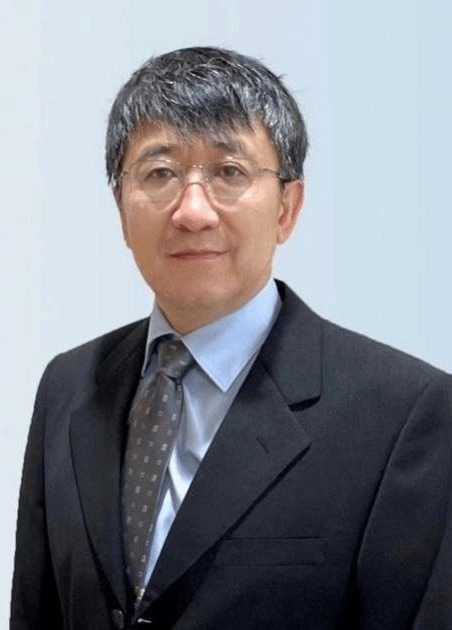Keynote Speakers
Tianzi Jiang Professor, Director of Beijing Key Laboratory of Brainnetome and Brain-Computer Interface |
Ying Xu Chair Professor of School of Medicine, Southern University of Science and Technology, Changjiang Scholoar Chair Professor, Thousand Talents Program Chair Professor |
Jin-Wu Nam Professor, Department of Life Science, College of Natural Sciences, Hanyang University, Seoul, Korea |
Yunlong Liu T. K. Li Chair Professor for Medical Research, Director of Center for Computational Biology and Bioinformatics, Indiana University School of Medicine |

Human Brainnetome Atlas Guided Neuromodulation Methods and Device for Brain Diseases
Tianzi Jiang, Professor, Director of Beijing Key Laboratory of Brainnetome and Brain-Computer Interface
Abstract:Brain atlas is an indispensable tool for studying the relationship between brain structure and cognitive function. We proposed to create a new brain atlas - the Brainnetome atlas, using brain connectivity profiles. The Brainnetome atlas lays the foundation for research in brain science and brain-inspired intelligence, and opens a new avenue not only for the study of brain science and brain diseases, but also for brain-inspired intelligence. In this lecture, we first introduce the research background and content of the Brainnetome, including the definition and the main research directions of the Brainnetome, the idea of creating the Brainnetome atlas, and the essential differences from existing brain atlas. Then, we will introduce the application of the Brainnetome atlas in elucidating brain cognitive mechanisms and precise diagnosis of brain diseases. We will also introduce the challenges and solutions of neuromodulation robots guided by the Brainnetome atlas for precise treatment of brain diseases. Finally, a summary and perspective on future research directions are provided.
Tianzi Jiang is Professor and Director of Beijing Key Laboratory of Brainnetome and Brain-Computer Interface at the Institute of Automation, Chinese Academy of Sciences, and Director of Xiaoxiang Institute of Brain Health. He obtained PhD degree at Zhejiang University and BSc degree at Lanzhou University. His research interests include neuroimaging, Brainnetome, digital twin brain, neuromodulation methods and device, and their clinical applications in brain disorders. He was Chair of Organization of Human Brain Mapping. He was elected a member of the Academy of Europe, a fellow of IEEE, IAPR and AIMBE. He has published over 350 peer-review journal papers. He is the recipient of Hermann von Helmholtz Award, Turan Itil Career Contribution Award, and Natural Science Award of China.

Speech title:To be added...
Ying Xu,Chair Professor of School of Medicine, Southern University of Science and Technology,Changjiang Scholoar Chair Professor, Thousand Talents Program Chair Professor
Abstract:To be added...
Ying Xu is a Chair Professor of School of Medicine,Southern University of Science and Technology. He is a one of the famous scholars in Computational Systems Biology and Bioinformatics. He is also a Changjiang Scholar Chair Professor and a Thousand Talents Program Chair Professor. He joined the School of Medicine of Southern University of Science and Technology in January 2023. Previously, he was "Board Professor" and "Georgia Science Association Distinguished Scholar Chair" in the Department of Biochemistry, University of Georgia (2003-2022), and the first Director of the Institute of Bioinformatics, University of Georgia (2003-2011). He is an AAAS Fellow and an IEEE Fellow. He received his Ph.D. in Computer Science (Combinatorics and Algorithms) from the University of Colorado in 1991. He joined Oak Ridge National Laboratory in 1993 and worked for ten years as an assistant researcher, researcher, senior staff scientist and group leader. At the beginning, he participated in the Human Genome sequencing project, engaged in the computational methods and software implementation of searching protein-coding genes in the genome. He has also developed computational methods for protein tertiary structure prediction, statistical analysis of microbial genomes, modeling of metabolic systems, and functional prediction. In 2003, his research team joined the University of Georgia to establish the Institute of Bioinformatics, and at the same time joined the Department of Biochemistry at the University of Georgia. Since 2008, we began to study the driving force and mechanism of tumor occurrence, development and metastasis through tumor omics data. He has published nearly 400 academic papers and five books, including the world's first "tumor informatics" monograph, with more than 21000 citations and H index of 73. He serves as the editor in chief, deputy editor in chief, or editorial board member for more than ten professional journals, such as IEEE/ACM Transaction on Computational Biology and Bioinformatics, Journal of Computer Science and Technology, journal of Molecular Cell Biology. In 2001, he won the R&D100 Invention and Creation Award in the United States in 2001. In 2003, he was awarded the title of Outstanding Scholar by the Georgia Cancer Society and Famous Scholar by the Georgia Association for Science. In 2007, he was elected as an AAAS FeIlow. He was selected as a Changjiang Scholar Chair Professor and Thousand Talents Program Chair Professor in 2008 and 2012, respectively. In 2021, he was elected as an IEEE Fellow.
Since 2003, he has hosted the International Symposium on Bioinformatics (2003-2013) and the International Symposium on Systems Biology of Cancer (2011-) in China every year, and lectured on summer courses on Bioinformatics or cancer informatics every year, attracting more than 60,000 participants.

AI-Aided Design of Artificial RNA Molecules and Drugs
Jin-Wu Nam, Professor, Department of Life Science, College of Natural Sciences, Hanyang University, Seoul, Korea.
Abstract:The artificial intelligence (AI)-assisted design of synthetic, optimized RNA elements provides a new innovative strategy for the development of cancer/infectious disease vaccines and new RNA drugs. Recently, many related landmark studies and patents on the artificial features have been filed and occupied by a few companies and academia. In this talk, I will discuss our recent progress in AI-assisted design of synthetic RNA vaccines with some ongoing studies and the future prospects for intelligent design of new RNA drugs for disease prevention. Our new deep neural network model for designing next-generation RNAi for RNA drugs as well as advanced CRISPR sgRNAs for genome editing will be presented. In addition, recent research trends in the field of advanced biotechnology and the Advanced Biotechnology Initiative announced by the government will be briefly introduced.
Dr. Jin-Wu Nam is a professor in the Department of Life Science at Hanyang University, Seoul, Korea, and is also a director of next-generation biotechnology division at the National Research Foundation of Korea. After receiving his bachelor’s degree from the Department of Biology at Yonsei University, he pursued an interdisciplinary program in bioinformatics at Seoul National University (SNU), where he was advised by Prof. Byoung-Tak Zhang and co-advised by Prof. V. Narry Kim. During his postdoctoral research in Prof. David Bartel’s lab at the Whitehead Institute/MIT, he studied novel forms of gene regulation by miRNAs and discovered new long noncoding RNAs across various species. In September 2012, he joined the faculty at Hanyang University. His lab has since been investigating the hidden wonders of the genome's "outback" (i.e., the non-coding genome) through both computational and experimental approaches. More recently, his lab has developed an advanced bioinformatics framework aimed at creating highly reliable and efficient genomic tools. In addition, they are pioneering AI-based computational methods to analyze the functions of non-coding elements and design synthetic molecules for applications in engineering biology and high-throughput screening. From 2021 to 2023, he served as deputy director of the Hanyang Institute of Bioscience and Biotechnology (HY-IBB). In December 2023, Dr. Nam was elected as a Director (PM) of Next-Generation Biotechnology division at the Directorate for National Strategic R&D Programs of the National Research Foundation (NRF) in Korea, where he will serve a two-year term. In January 2025, he was elected as a member of the Presidential Bio Committee of Korea.

Decoding Complex Traits through Functional Genomics, Multi-Omics, and Machine Learning Models
Yunlong Liu, Professor, T. K. Li Chair Professor for Medical Research,Director, Center for Computational Biology and Bioinformatics
Abstract:Genome-wide association studies (GWAS) have uncovered tens of thousands of genetic variants associated with complex traits and diseases. However, translating these associations into mechanistic insights and therapeutic opportunities remains a fundamental challenge. In this talk, I will present several recent studies that bridge this gap by integrating GWAS discoveries with large-scale functional and computational genomics. We combine experimental approaches—including Massively Parallel Reporter Assays (MPRA), single-cell and bulk RNA sequencing, long read sequencing and CRISPR-based perturbations—with advanced computational frameworks that leverage statistical modeling, causal inference, and machine learning models. By jointly analyzing multi-omics data at scale, we are able to identify regulatory variants, resolve cell-type–specific effects, and prioritize causal genes underlying complex phenotypes. I will also discuss emerging strategies for building predictive models of disease risk and cellular function, illustrating how close integration of computation and experimentation is reshaping our ability to connect genetic variation with molecular mechanisms and clinical outcomes.
Dr. Yunlong Liu is the T.K. Li Chair for Medical Research and a Chancellor’s Professor in the Department of Medical and Molecular Genetics at Indiana University School of Medicine. He serves as Director of the Center for Computational Biology and Bioinformatics, a research center with 32 full-time principal investigators, and the Center for Medical Genomics, a core facility supporting next-generation sequencing, single-cell analysis, and spatial omics. His research integrates computational and experimental genomics—spanning single-cell and spatial technologies, long-read sequencing, large-scale data integration, and advanced statistical and machine learning models—to investigate how genetic variation influences cell morphology, tissue function, and the risk and progression of complex diseases, including cancer, Alzheimer’s disease, and addiction. Dr. Liu has led numerous NIH-funded initiatives and national collaborations, and he is a dedicated mentor, educator, and advocate for advancing genomic science through multidisciplinary teamwork.
